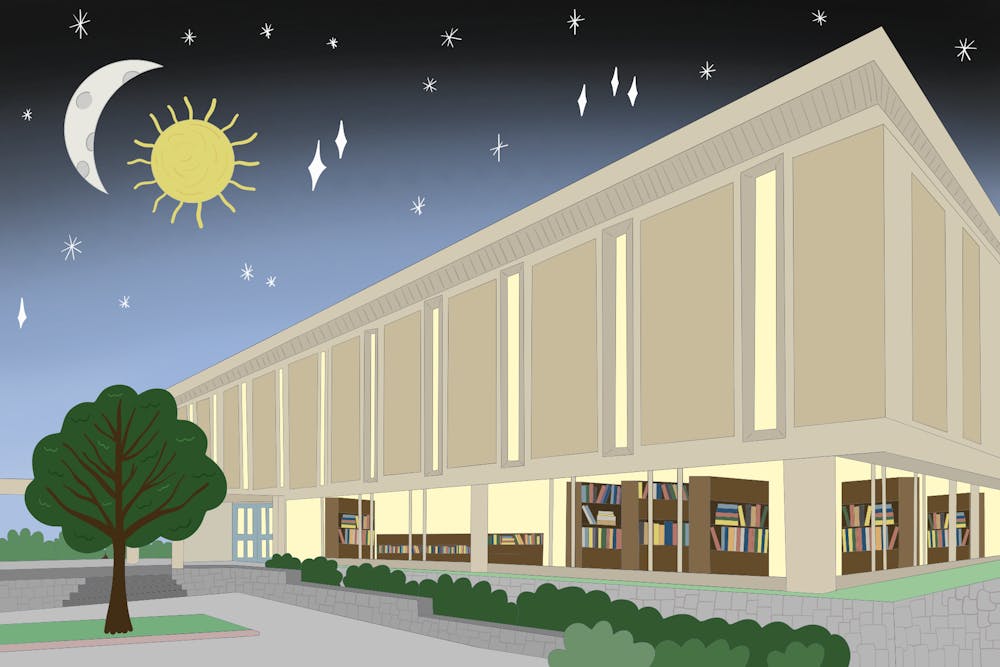The Undergraduate Library will operate on a 24-hour schedule from April 30 to May 8, marking the first extended-hours pilot since the COVID-19 pandemic.
The initiative aims to provide additional study space during finals while addressing long-standing student requests for overnight access.
2025-26 Student Body President AdolfoAlvarez, who was not directly involved in the program but did campaign for it, said that the 24-hour pilot was a core pillar of his administration’s academic support platform.
“We were one of the only few institutions, the top 20 to top 30 in the country, that didn’t have access to this,” Alvarez said.
Alvarez said that during his campaign, students consistently identified longer library hours as a pressing need, which he said contributed to awareness of the issue. He also said that the pilot’s timing is particularly relevant as UNC prepares for an increase in enrollment over the next ten years, meriting a need for more student resources.
“I think that it's a reflection of the fact that the administration can be receptive of students' feedback, but only when awareness is collective," he said. "And it's not just me walking into rooms and telling the University to change things, but showing that the student body has an overall desire for those things to change.”
The library will staff overnight hours with both professional and student workers while requiring One Card access after 10 p.m. for security purposes. The UL will track occupancy data to evaluate the pilot’s success and decide if similar operations during exam weeks are not only demanded, but useful to students.
Suchi Mohanty, head of the UL and interim director of access services, explained that the library was selected for longer hours due to the UL’s central location near residence halls, undergraduate-focused environment and manageable and contained space for overnight operations.
Mohanty said the University Libraries decided to pilot the program as a respond to student needs during a stressful and busy period of the semester. The Libraries, she said, received feedback from a variety of avenues, including a Student Library Advisory Board.




